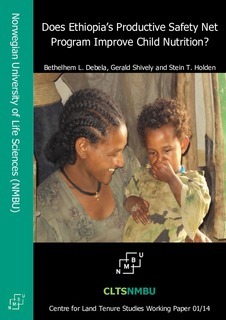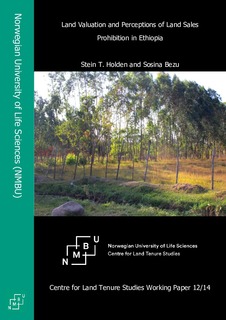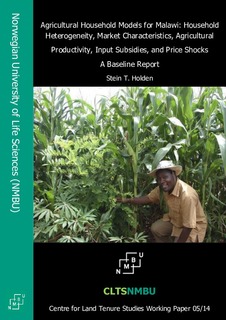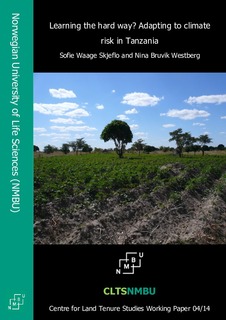Location
The Centre for Land Tenure Studies was opened at the Nowegian University of Life Sciences (NMBU) on the 27th of June 2011 resulting from a joint initiative by researchers at the Department of International Environment and Development (Noragric), the School of Economics and Business, and the Department of Landscape Architecture and Spatial Planning. In 2012 was joined by the Department of Ecology and Natural Resource Management.
Mission
The Centre for Land Tenure Studies (CLTS) at NMBU is established to further the study of land tenure. Land tenure studies define a broad and complex field of study cutting across many disciplines. For CLTS this entails, but is not limited to, the following activities:
- Provide a common arena for discussing land tenure issues, including a series of seminars directed to present new research or important theoretical perspectives. This may be designed as part of an educational program.
- Promulgate a joint series of working papers.
- Support international publication of articles and books.
- Develop and conduct joint courses at both Master and PhD level.
- Initiate and support exchange of researchers.
- Participate in research networks related to land tenure.
- Maintain a public list of collaborating institutions and researchers.
- Initiate and develop applications for research funds to support basic research on land tenure both by our own efforts and in collaboration with other research groups working on land tenure questions.
In its activities the centre will use English as its working language as far as practically possible. In short we may say that the mission of the Centre for Land Tenure studies is to enhance collaboration across departments at NMBU; to strengthen the visibility of NMBU activities within the field of land tenure; to strengthen NMBU’s international collaboration and networks within the field; to contribute to research and knowledge generation on land tenure issues; to help build capacity in the South and in Norway within the field; to disseminate policy lessons, and to contribute to policy debates.
Resources
Displaying 41 - 45 of 67Does Ethiopia's productive safety net program improve child nutrition?
We study the link between Ethiopia’s Productive Safety Net Program (PSNP) and short-run nutrition outcomes among children age 5 years and younger. We use 2006 and 2010 survey data from Northern Ethiopia to estimate parameters of an exogenous switching regression. This allows us to measure the differential impacts of household characteristics on weight-for-height Z-score of children in member and non-member households in PSNP. We find that the magnitude and significance of household covariates differ in samples of children from PSNP and non-PSNP households.
Land valuation and perceptions of land sales prohibition in Ethiopia
This study investigates attitudes towards legalizing land sales and Willingness to Accept (WTA) sales prices and compensation prices for land among smallholder households in four different areas in the Oromia and SNNP Regions in the southern highlands of Ethiopia. Household panel data from 2007 and 2012 are used. The large majority of the sample prefers land sales to remain illegal, and the resistance to legalizing land sales increased from 2007 to 2012. In the same period, perceived median real land values increased sharply but also exhibit substantial local variation.
Agricultural household models for Malawi : household heterogeneity, market characteristics, agricultural productivity, input subsidies, and price shocks : a baseline report
This report documents agricultural household models developed for agricultural policy analyses related to the assessment of impacts of agricultural input subsidies and maize technology choices in Malawi. The models have been calibrated to a typology of households in Central and Southern Regions of Malawi based on household survey data collected for the period 2005-2010. Households are assumed to be drudgery averse and rational given their preferences and the resource constraints and imperfect markets they face.
Learning the hard way? : adapting to climate risk in Tanzania
We use recent panel data on Tanzanian farm households to investigate how previous exposure to weather shocks affects the impact of a current shock. Specifically, we investigate the impact of droughts on agricultural outcomes and investments in children’s health, measured by their short- and long-term nutritional status. As expected, we find that droughts negatively impact yields, with the impact increasing in the severity of the shock, and that severe droughts have a negative impact on short-term nutritional outcomes of children.
Economy-wide effects of input subsidies in Malawi : market imperfections and household heterogeneity
The potential benefits of providing subsidized inputs to farm-households in developing countries may reach well beyond the targeted households. More specifically, increased food productionand demand for rural labor may benefit poor households through lower food prices and higherrural wages. However, two recent studies of a large input subsidy program in Malawi find thatthese effects are smaller than expected based on anecdotal evidence and previous studies usingsimulation models.












